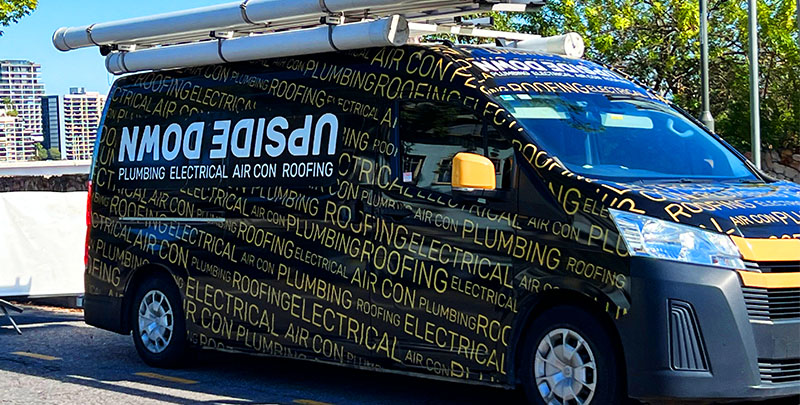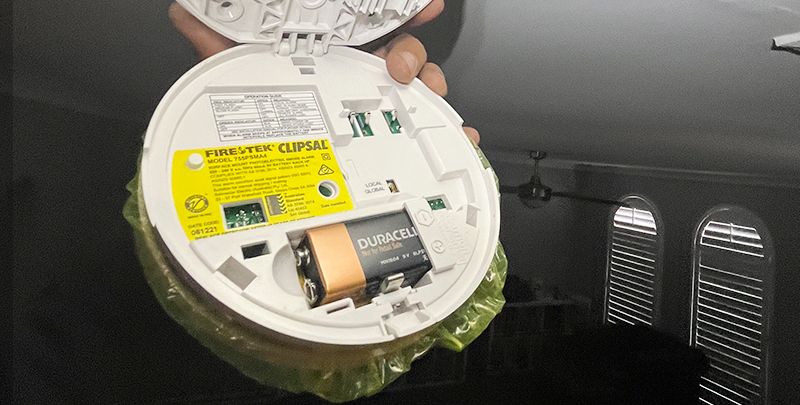How Often Should Smoke Alarms Be Tested?

Smoke alarms are one of the most critical safety devices in any home or building, as they play a vital role in detecting and warning occupants about potential fires. However, their effectiveness relies on regular testing and maintenance.
These life-saving devices should be present in every residential and commercial space. Smoke alarms must detect the presence of smoke, an early indicator of a fire, and emit a loud warning sound to alert occupants to the potential danger. Regular testing and maintenance are crucial to ensure smoke alarms are in optimal working condition when needed.
The Importance of Smoke Alarms
The right smoke alarm unit is essential for early fire detection. In a fire emergency, seconds can make a significant difference in preventing injuries and saving lives. The piercing smoke alarm sounds can wake occupants and give them precious time to evacuate the building safely.
In some cases, they may also provide an early warning to prevent a small fire from spreading and causing extensive damage.
How Smoke Alarms Work
Smoke alarms use different technologies to detect smoke particles in the air. The most common types are ionisation and photoelectric smoke alarms.
Ionisation alarms are more sensitive to fast-flaming fires, while photoelectric alarms better detect slow, smouldering fires. Some modern working smoke alarms combine both technologies for enhanced safety.
Testing Frequency for Smoke Alarms
Regular testing ensures a working smoke alarm is in proper order. Different testing intervals are recommended to maintain their functionality effectively.
1. Monthly Testing
It is advisable to test your smoke alarms once a month. This can be done by pressing and holding the test button until the alarm sounds. If the alarm does not sound, the batteries might be depleted, or the unit might be faulty.
2. Semi-Annual Testing
In addition to monthly testing, it is recommended to perform a more thorough test every six months. This involves using a simulated smoke source to ensure the alarms respond correctly.
3. Annual Testing and Inspection
Once a year, it is essential to conduct a comprehensive inspection of all smoke alarms. This may include cleaning the unit, checking for physical damages, replacing the batteries or replacing smoke alarms.
Tips for Testing Smoke Alarms
To ensure accurate testing and maintenance of new smoke alarms, consider the following tips:
- Inform all occupants about the testing schedule to avoid confusion or panic when the alarms are activated.
- Choose a specific date for monthly testing to establish a routine.
- Replace the batteries immediately if the smoke alarm emits weak or irregular sounds during testing.
- Conduct testing during daylight hours to minimise disturbances caused by false alarms during nighttime.
- Always follow the manufacturer’s instructions when testing and maintaining smoke alarms.
Smoke Alarm Maintenance
Proper maintenance is essential to keep smoke alarms in optimal condition and extend their lifespan. Here are some maintenance tips:
- Cleaning: Dust and debris can accumulate inside the smoke alarm, affecting its sensitivity. Regularly clean the unit using a vacuum cleaner or a soft brush to remove dirt.
- Replacing batteries: Smoke alarm batteries should be replaced annually or after the low-battery warning signal is activated. Always use fresh, high-quality batteries to ensure reliable performance.
- Replacement interval: Smoke alarms have a limited lifespan, usually between 8 to 10 years. If your smoke alarm is older than the recommended timeframe, replacing it with a new one is best.
Different Types of Smoke Alarms
Smoke alarms come in various types to suit different needs and preferences:
- Battery-powered alarms: Battery-powered smoke alarms are easy to install and are suitable for homes without hard-wired connections.
- Hard-wired alarms: Hard-wired smoke alarms are directly connected to the electrical system of the building. They usually have a backup battery in case of power outages.
- Interconnected alarms: Interconnected smoke alarms are linked together, so when one detects smoke, all alarms in the network will sound simultaneously.
- Smart smoke alarms: Smart smoke alarms can send alerts to your smartphone or other devices, providing real-time notifications about potential fire incidents.
Smoke Alarm Legislation and Standards
Many countries have established legislation and standards for smoke alarms to ensure consistent fire safety practices. It is essential to comply with these regulations to enhance smoke alarm solutions for safety in commercial or residential buildings.
Dealing with Nuisance Alarms
Nuisance alarms, often triggered by cooking fumes or steam, can be frustrating. To reduce false alarms, avoid placing smoke alarms near kitchens, bathrooms, or dead air space.
Upgrading Smoke Alarm Systems
If you have an older smoke alarm system, consider upgrading to modern, more efficient models with improved performance and added features in every bedroom and living area.
 Ensuring Smoke Alarms in Rental Properties
Ensuring Smoke Alarms in Rental Properties
Landlords are responsible for installing and maintaining smoke alarms in rental properties, while tenants should promptly report any issues with the alarms.
Smoke Alarms for People with Hearing Impairments
For individuals with hearing impairments, special smoke alarms with vibrating pads or strobe lights are available to provide visual or tactile alerts.
Stay Safe, and Test Regularly with an Expert
Smoke alarms are indispensable to our safety, providing early warning and critical time to respond to a fire emergency. Regular testing, maintenance, and adherence to safety standards ensure these devices function optimally. By following the recommended guidelines and best practices, we can enhance the safety of our homes and workplaces.
Upside Down Electrical believes in the power of prevention and safety, and we encourage all homeowners and business owners to take this matter seriously. By following the testing guidelines and adhering to the recommended schedules, you can have peace of mind knowing that your smoke alarms are always ready to protect you from potential fire hazards.
Please note: This information is provided for advice purposes only. Regulations differ from state to state, so please consult your local authorities or an industry professional before proceeding with any work. See our Terms & Conditions here.